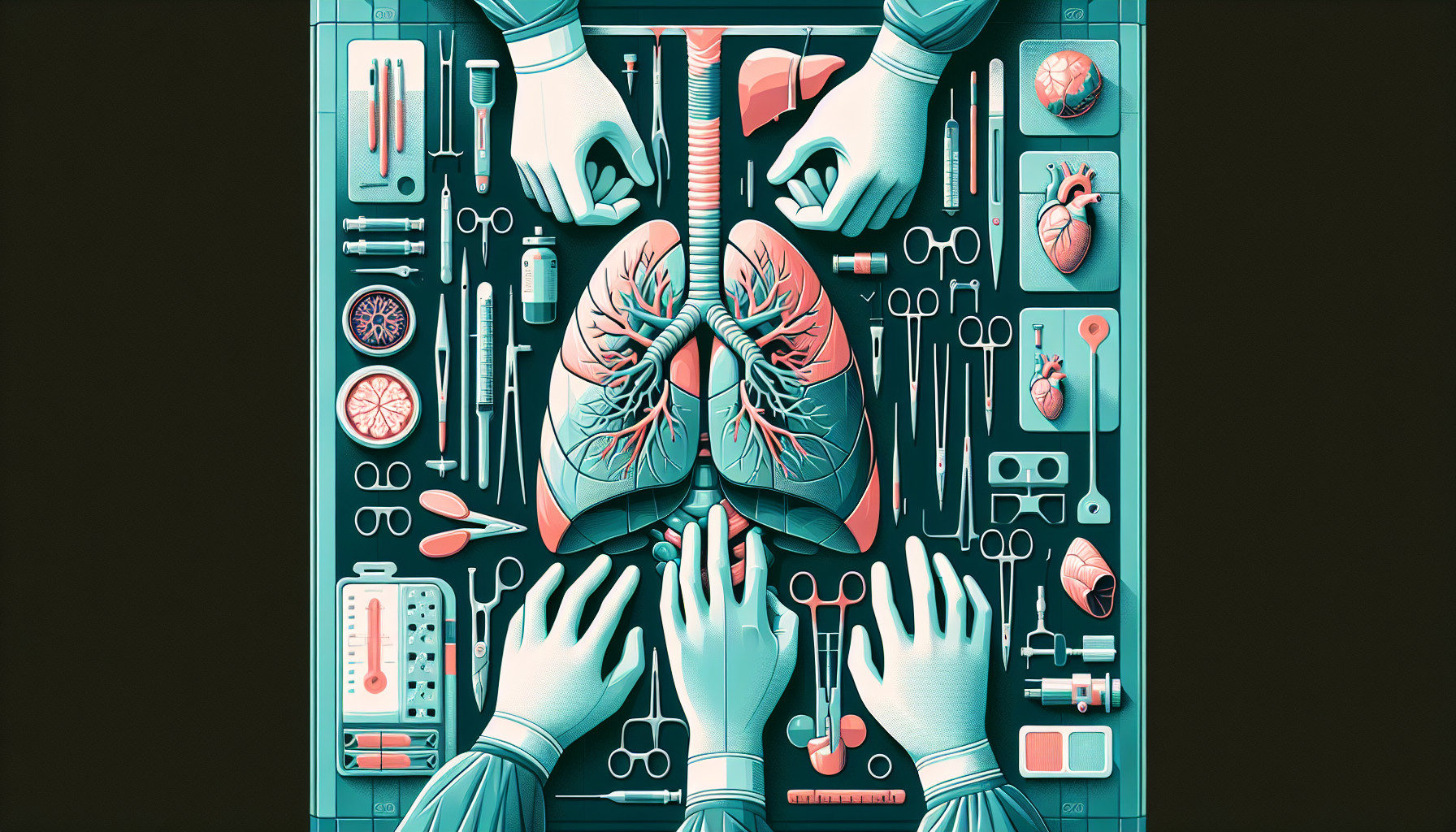Our Summary
This study aimed to understand how removing parts of a lung (lung resection) influences the lung’s flexibility (compliance) and the balance of fluid in the lung and surrounding membrane (pleuro-pulmonary fluid balance). The researchers studied patients under anesthesia who were having parts of their lung removed due to lung cancer.
They measured how flexible the patient’s lung was before and after the surgery, and they collected fluid from the lining around the lungs during the patient’s hospital stay.
What they found was that the more lung mass was removed, the less flexible the remaining lung became. This decrease in flexibility was more than what they had anticipated based on the weight of the lung before surgery. They also found that the amount of fluid drained from the lining around the lungs was related to the amount of lung mass left and the flexibility of the lung after surgery.
The data suggests that the decrease in lung flexibility following surgery is likely due to disturbances in the balance of fluid in the lung and surrounding membrane.
FAQs
- What is the effect of lung resection on lung compliance and pleuro-pulmonary fluid balance?
- How was lung compliance measured before and after lung resection in the study?
- What correlation was found between compliance and resected mass in the study?
Doctor’s Tip
A helpful tip a doctor might tell a patient about lung resection is to follow post-operative care instructions carefully, including breathing exercises and physical therapy to help improve lung function and prevent complications such as pneumonia. It is also important to attend follow-up appointments to monitor lung compliance and pleuro-pulmonary fluid balance. Additionally, maintaining a healthy lifestyle with regular exercise and a balanced diet can help support lung health and overall recovery.
Suitable For
Patients who are typically recommended for lung resection are those with lung cancer, particularly those with a significant mass that is affecting lung function. The study found that there was a significant negative correlation between compliance and resected mass, indicating that patients with larger masses may have decreased lung compliance. Additionally, the study found that there was a relationship between pleural fluid drainage flow and remaining lung mass, suggesting that patients with larger masses may also have issues with pleuro-pulmonary fluid balance. Overall, patients with large lung masses that are impacting lung function and fluid balance may be recommended for lung resection.
Timeline
Before lung resection:
- Patient is diagnosed with lung cancer and undergoes pre-operative evaluation
- Patient undergoes imaging studies (such as CT scans) to determine the extent of the tumor and the need for surgery
- Patient may undergo pre-operative lung function tests to assess lung capacity and function
- Patient discusses surgical options with their healthcare provider and decides to proceed with lung resection
After lung resection:
- Patient undergoes surgery to remove part or all of the affected lung
- Patient is closely monitored in the post-operative period for complications such as air leaks or infection
- Lung compliance is measured before and after surgery to assess the impact of resection on lung function
- Pleural fluid drainage may be collected during the hospital stay to monitor fluid balance
- Lung re-expansion is monitored to ensure proper healing and function of the remaining lung tissue
- Patient undergoes post-operative follow-up care to monitor recovery and address any complications
Overall, the patient’s experience before and after lung resection involves thorough evaluation, surgical intervention, monitoring of lung function and fluid balance, and post-operative care to ensure optimal recovery and outcomes.
What to Ask Your Doctor
- How will lung resection affect my lung compliance?
- What can I expect in terms of pleuro-pulmonary fluid balance after the surgery?
- Will there be any potential complications related to lung resection that I should be aware of?
- How long is the recovery process expected to be after lung resection?
- Are there any specific post-operative care instructions or precautions I should follow?
- Will I need any additional treatments or therapies after the surgery to help with lung function?
- How will lung resection impact my overall lung health in the long term?
- Are there any lifestyle changes or modifications I should consider after lung resection?
- What are the potential risks and benefits of undergoing lung resection for my specific condition?
- Are there any alternative treatment options to consider besides lung resection?
Reference
Authors: Salito C, Bovio D, Orsetti G, Salati M, Brunelli A, Aliverti A, Miserocchi G. Journal: Respir Physiol Neurobiol. 2016 Jan 15;221:35-40. doi: 10.1016/j.resp.2015.10.006. Epub 2015 Nov 10. PMID: 26555081
